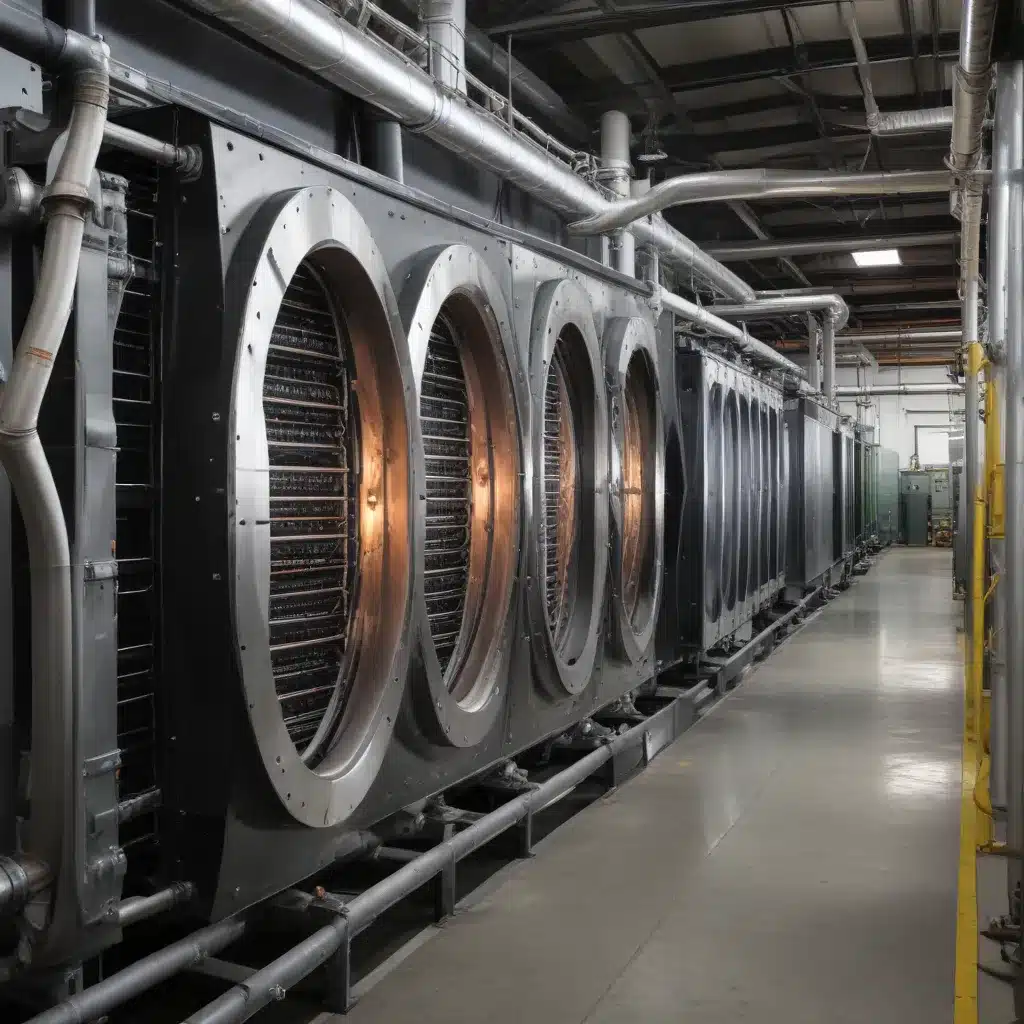
In today’s rapidly evolving industrial landscape, the pursuit of energy efficiency has become a paramount concern across diverse sectors. As businesses strive to reduce their environmental impact and operational costs, the role of heat exchangers in optimizing thermal management processes has become increasingly critical. As a seasoned expert in the field of air-cooled heat exchangers, I am thrilled to share practical tips, in-depth insights, and the latest advancements that are transforming the way we approach heat transfer challenges.
The Importance of Efficient Heat Exchange
Heat exchangers are the unsung heroes of modern industries, playing a pivotal role in ensuring the efficient transfer of thermal energy between fluids. Whether it’s regulating temperatures in HVAC systems, optimizing production processes in the food and beverage industry, or powering critical infrastructure in the petrochemical sector, these ingenious devices are the backbone of thermal management.
The principles of heat exchange are relatively straightforward – as the hotter fluid passes through the exchanger, it transfers its thermal energy to the cooler fluid, resulting in temperature adjustments on both sides. This simple yet elegant process forms the foundation for a wide range of applications, from industrial cooling to waste heat recovery.
However, the real magic lies in the engineering and design of heat exchangers, which has undergone a remarkable evolution in recent years. By leveraging cutting-edge materials, innovative geometries, and advanced manufacturing techniques, heat exchanger technologies have become increasingly efficient, durable, and environmentally friendly.
Mastering Air-Cooled Heat Exchangers
At the forefront of this technological revolution are air-cooled heat exchangers, which have emerged as a popular choice for applications where water availability or cost is a concern. These robust and versatile units excel in industries such as petrochemical, power generation, and process cooling, where they provide reliable heat dissipation without the need for a dedicated water supply.
One of the key advantages of air-cooled heat exchangers is their inherent energy efficiency. By utilizing the natural convection and heat transfer properties of air, these exchangers can achieve high levels of thermal performance while minimizing the energy required for cooling. This makes them an attractive option for businesses seeking to reduce their carbon footprint and operational expenses.
Alfa Laval, a renowned industry leader in heat exchanger development, offers a diverse portfolio of air-cooled heat exchanger solutions designed to meet the unique demands of various industries. Their cutting-edge technologies, such as finned tube and wet surface air heat exchangers, are engineered to provide superior heat dissipation while optimizing energy efficiency.
Innovative Designs for Enhanced Performance
Beyond the basic air-cooled design, heat exchanger technologies have undergone a remarkable evolution, incorporating advanced features and materials to push the boundaries of thermal management.
One such innovation is the use of scraped surface heat exchangers, particularly in applications involving viscous or sticky fluids. These specialized units feature rotating scraping blades that continuously clean the heat transfer surfaces, preventing fouling and ensuring consistent heat transfer performance. This makes them particularly well-suited for industries such as food and dairy, pharmaceuticals, and chemicals, where maintaining product quality is of utmost importance.
Another exciting advancement in heat exchanger design is the emergence of plate-and-frame heat exchangers, which offer exceptional efficiency and compactness. These modular units are highly customizable, allowing for tailored solutions that meet the specific needs of various industries, from HVAC systems to chemical processing.
Enhancing Energy Efficiency through Immersion Cooling
As the demand for high-performance computing and data processing continues to grow, the energy-intensive nature of data centers has become a significant concern. Traditional air-cooling methods are often inadequate, leading to substantial power consumption and environmental impacts.
To address these challenges, innovative cooling solutions have emerged, with immersion cooling technologies playing a transformative role. Immersion cooling involves the complete submersion of electronic components, such as servers and storage devices, in a thermally conductive yet electrically insulating liquid coolant. This approach not only reduces a data center’s energy usage by up to 60% but also minimizes water consumption compared to traditional cooling methods, aligning with organizations’ sustainability goals.
Dow’s DOWSIL™ Immersion Cooling technology, designed for single-phase immersion cooling applications, stands out as a hybrid silicone-organic fluid that offers exceptional heat transfer capabilities. By effectively penetrating confined spaces and efficiently cooling electronic components, this innovative solution supports increased server load densities and enhanced computing performance, while dramatically reducing data center footprint and power requirements.
Maintenance and Optimization Strategies
Alongside advancements in heat exchanger design, the importance of proper maintenance and optimization strategies cannot be overstated. To ensure the long-term efficiency and reliability of these critical assets, regular inspections, preventive maintenance, and targeted troubleshooting are essential.
Alfa Laval’s comprehensive service offerings provide expert guidance and support throughout the heat exchanger’s operational life. Their team of skilled technicians is ready to address any concerns promptly, offering genuine spare parts and tailored solutions to keep your heat exchangers running at peak performance. By prioritizing maintenance and optimization, businesses can extend the lifespan of their heat exchangers, minimize downtime, and optimize energy efficiency.
The Future of Sustainable Thermal Management
As the world continues to grapple with the pressing challenges of energy consumption and environmental sustainability, the role of heat exchangers in driving positive change has never been more crucial. Through the integration of cutting-edge technologies, innovative materials, and advanced manufacturing techniques, heat exchanger solutions are poised to play a pivotal role in shaping a more energy-efficient and environmentally responsible future.
By exploring the latest advancements in air-cooled heat exchangers, scraped surface heat exchangers, plate-and-frame heat exchangers, and immersion cooling technologies, businesses can unlock new levels of thermal management efficiency, cost savings, and sustainability. As we continue to navigate the evolving landscape of industrial processes and data-driven applications, the heat exchangers of tomorrow will undoubtedly be the unsung heroes that power the sustainable technologies of the future.

